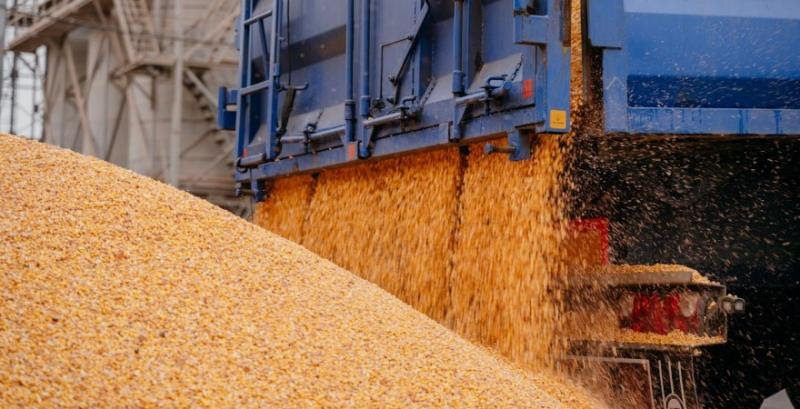Will Ukrainian grain get stuck in Poland?

Transporting Ukrainian agricultural products, especially grain, via Poland may become significantly more difficult in 2023. The export of grain from Ukraine to Poland via the Izov-Hrubieszów rail border crossing has been prohibited since 27 February, according to the Ukrainian Agri Council (BAP). This border crossing has been one of the most used to ship Ukrainian grain via Poland since the beginning of the war. Moreover, veterinary border controls at all border crossings between the two countries have significantly increased, causing notable delays and queues.
As BAP claimed, the procedure for “selective control of feed grain in trains and trucks has been changed since 16 February 2023”. For example, veterinary border controls at the Yahodyn-Dorohusk crossing have drastically increased already since 17 February. The new policy implies that each wagon on every convoy must be inspected. BAP is lamenting that the new policy implementation is leaving trains at the station in Dorohusk for three to four days in order to be checked. Previously, the waiting time at that station was only one day.
The previous regime, introduced at the beginning of 2022, allowed for the possibility of having veterinary border controls carried out inside the country. This initiative helped to relieve some pressure from border crossings. However, Poland decided not to renew the initiative, causing the transit of grain cargo to be halved and creating long queues at the Yahodyn-Dorohusk border crossing. RailFreight.com tried to contact various Polish industry players, from both the public and private sectors, with no luck so far.
The Ukrainian Agri Council (BAP) will be represented at the RailFreight Summit Poland for a discussion about rail freight between Poland and Ukraine.
Ukraine will be critically affected, says BAP
BAP highlighted that veterinary border controls have now been re-implemented for trains transiting through Poland as well. These specific checks were canceled at the beginning of the Russian invasion of Ukraine, and the Council stated they should still not be carried out. Andriy Dykun, head of BAP, said that this slowdown “will critically affect both the agricultural sector of Ukraine and the economy as a whole”.
As BAP explained, almost half of the grain transported via Poland passes through the Izov-Hrubieszów rail border crossing. This prohibition will therefore increase the number of inspections and consequently create delays. “Such actions can undermine all efforts of the European Union and Ukraine to develop the Solidarity Lines and will cause significant damage to the agricultural sector”, Dykun added.
To this end, the Council stated that the European Commission is urging Member States to increase the infrastructure potential of new export corridors for Ukraine. The EC is therefore asking for new connections to Ukraine as well as more flexibility and adequate staff to speed up procedures at border crossings. BAP concluded by stressing the need to restore “the previous procedure of selective control of grain transported across the Ukrainian-Polish border by rail and road”.
RailFreight Summit Poland
Do you want to discuss rail freight between Poland and Ukraine with experts in the field? This topic is high on the agenda at the RailFreight Summit Poland, which is taking place on 19 & 20 April in Warsaw. The BAP will be one of the speakers engaged in the discussion. You can find the programme here, and register here.
Are you a gamechanger in the rail freight industry? And do you want to spread the word? Railfreight.com is currently producing its first-ever magazine, titled The Gamechangers of the Industry. Your companycan be included in this magazine. Interested? You can find more information on this webpage.
Also read:




